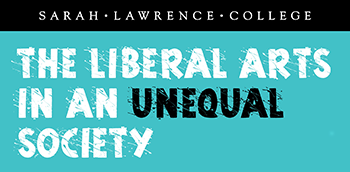Event Title
People Create Change: Why Public Policy, Government and a Liberal Arts Education Matter in the Fight Against Inequality
Location
Donnelley Theatre, Heimbold Visual Arts Center
Start Date
14-11-2014 3:00 PM
End Date
14-11-2014 3:30 PM
Abstract
Idealism and pragmatism meet in the decades-long transformation of New York City’s neighborhoods, social welfare and human services. From affordable housing and community development to public health, public assistance and child welfare, the last 30 years have seen an elaborate dance that includes working class and low-income New Yorkers along with public policy makers—often working together, in creative tension. The results have been remarkable, if incomplete, despite structural forces that make progress invariably difficult. We know with certainty that public policy, government and the nonprofit sector all matter a great deal when it comes to addressing severe poverty and reducing the traumas and turmoil that economic poverty creates in people’s lives. And we know from deep experience that the liberal arts education of several generations of government and nonprofit leaders and staff has shaped this work, often for the better.
Presenter Biography
Andrew White is the Deputy Commissioner for Policy, Planning & Measurement at the New York City Administration for Children's Services, where he oversees research, analysis, policy and program development for the city’s child welfare, juvenile justice and early childhood education systems. From 1998 until earlier this year, he was Director of the Center for New York City Affairs at The New School, an applied policy research center focused on child and family services, urban poverty and public education. He was also a member of the faculty of The New School’s graduate program in urban policy, where he developed the politics and media concentration and taught courses such as The Politics of Policy in New York City; Power, Strategy & Social Change; Criminal Justice Policy; and the Community Schools Partnership Lab. He has published dozens of studies, reports and book chapters on critical issues in urban policy and on strategies for community development, including most recently, “Creating Collective Capacity: NYC’s Social Infrastructure and Neighborhood-Centered Services,” included in Toward a 21st Century City for All, edited by John Mollenkopf. For most of the 1990s, he was editor-in-chief of City Limits, a magazine serving the nonprofit sector that covers community development, housing, neighborhoods and activism. His work has appeared in The New York Times, Newsday, the Daily News, El Diario/La Prensa, the American Prospect and elsewhere. White is co-founder of the journal Child Welfare Watch, and of the Center for an Urban Future. He is a graduate of Middlebury College and the Columbia University Graduate School of Journalism.
Streaming Media
People Create Change: Why Public Policy, Government and a Liberal Arts Education Matter in the Fight Against Inequality
Donnelley Theatre, Heimbold Visual Arts Center
Idealism and pragmatism meet in the decades-long transformation of New York City’s neighborhoods, social welfare and human services. From affordable housing and community development to public health, public assistance and child welfare, the last 30 years have seen an elaborate dance that includes working class and low-income New Yorkers along with public policy makers—often working together, in creative tension. The results have been remarkable, if incomplete, despite structural forces that make progress invariably difficult. We know with certainty that public policy, government and the nonprofit sector all matter a great deal when it comes to addressing severe poverty and reducing the traumas and turmoil that economic poverty creates in people’s lives. And we know from deep experience that the liberal arts education of several generations of government and nonprofit leaders and staff has shaped this work, often for the better.



